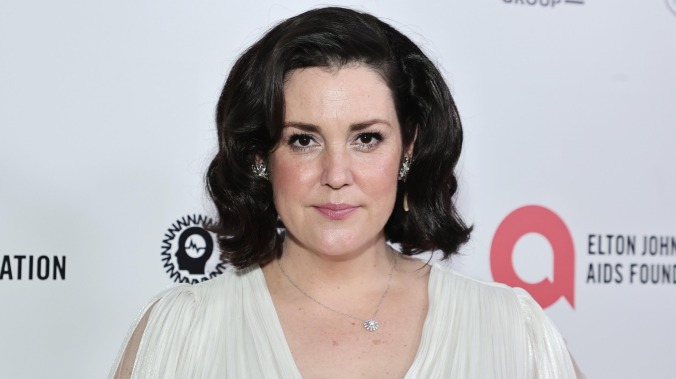Melanie Lynskey is currently experiencing perhaps the peak of a long and fruitful career. Yet even amidst the critical acclaim and audience adoration, she’s still forced to navigate Hollywood’s—and society’s—impossible beauty standards. While celebrating the success of Yellowjackets, she must also combat incessant body shaming. It’s undoubtedly exhausting, even if she’s well used to it by now.
Lynseky tells The New York Times that her early career consisted of scripts for “the fat friend or the jokey kind of fat person. … There was one thing I read where the person had a candy bar in every scene.” She reflects, “It was kind of a strange disconnect. I felt like I was pretending when I was going in and auditioning to play these dowdy people.”
Luckily, she’s now being offered meatier characters and starring roles, in which the persona is not tied to the way her body looks. Even then, though, Lynskey hasn’t been able to escape the scrutiny. People weighing in on her weight and health has been “The story of my life since Yellowjackets premiered,” she previously shared on Twitter, adding that “Skinny does not always equal healthy.” She also defended herself in the wake of her episode of The Last Of Us. “I’m playing a person who meticulously planned & executed an overthrow of FEDRA,” she replied to a former America’s Next Top Model who criticized the casting based on Lynskey’s appearance. “I am supposed to be SMART, ma’am. I don’t need to be muscly. That’s what henchmen are for.”
In January 2022, she told Rolling Stone that even a member of the Yellowjackets production team had suggested she get a trainer for the show. (Her castmates came to her defense in that instance.) “It was really important to me for [Shauna] to not ever comment on my body, to not have me putting a dress on and being like, ‘I wish I looked a bit better,’ “ she told the outlet. “I did find it important that this character is just comfortable and sexual and not thinking or talking about it, because I want women to be able to watch it and be like, ‘Wow, she looks like me and nobody’s saying she’s the fat one.’ That representation is important.”
For the Times, Lynskey now says, “I very much want to be onscreen representing an interesting person who’s not paying attention to what her tummy looks like.” Unfortunately, lots of other people have been paying attention—but hopefully, that won’t always be the case. “If there were more people who look like me, then I wouldn’t have to talk about it as much.”


 Keep scrolling for more great stories.
Keep scrolling for more great stories.